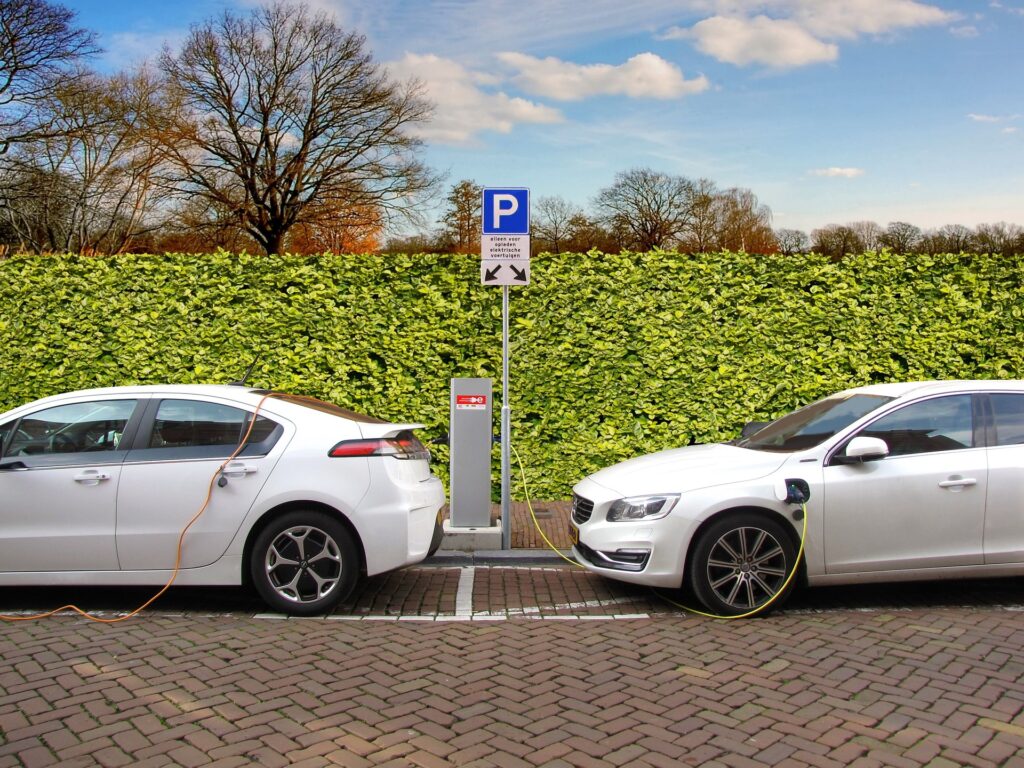- Route35 helps major automakers adapt to the European Union’s decision to fully electrify their cars and vans by 2035;
- As much as many countries have electrification goals, such as China, Japan and the United States, European law is one of the most ambitious;
- A large-scale electrification of transport can have geopolitical consequences in various areas of a nation or region.
In an assembly in October 2022, the European Union took an interesting decision, which even displeased some leaders of the economic bloc, such as Giorgia Meloni, Prime Minister of Italy: Completely banning the sale of combustion cars and vans, powered by gasoline or diesel, starting in 2035.
As it directly affects 27 EU member countries and Europe has large and renowned companies in the field, this can be considered the most radical decarbonization of the automotive industry.
It is clear that, with a law that affects a large industry, very present in Europe, businessmen in the field feel pressured. And that’s where Route35 came from, a commission led by Thierry Breton, European Commissioner, with the aim of analyzing whether Europe is really on track to implement millions of electric cars until the year of 2035.
The term literally means “Route to 2035” and the experts will meet for the first time in early December 2022. The idea is that they meet every three months to check on progress in introducing electric car technology in the European Union.
But what are the consequences and geopolitical influences on the decision?

How the European Union aims to end the sale of internal combustion cars by 2035 and sell only electric
In the European Union, the only sector that increased the emission of greenhouse gasses in the last three decades was the automobile sector. Even with this increase, according to the European Parliament, the decision to electrify the fleet reinforces that member countries are willing to achieve even the most ambitious goals in the European Union Climate Law.
The production of combustion cars will not be stopped drastically and suddenly. The idea is that this is a gradual transformation and that, by 2030, emissions from new cars sold must have decreased by 55% compared to 2021.
In addition, the largest European automakers intend to spend a lot of money on studies for the development and production of electric vehicles. Volkswagen, of Germany, plans a budget of 100 billion dollars, which aims to create its own catalog of vehicles powered by electricity and build new factories.
Mercedes-Benz, also a German brand, invested almost 50 billion dollars in the production and assembly of electric cars. BMW, German like the other examples, also follows the line of its competitors, planning an investment of at least 35 billion in the production of batteries that support a large supply and creation of vehicles.
Despite everything, it is interesting to remember that the law is not yet in force, as it still needs to go through the process of formal adoption by Parliament and the Council, in addition to the bureaucracy of publication in the Official Gazette.
The electrification objective announced by the European Union with the new law has already been published on the official website of the European Commission. The wish is that the continent becomes the first neutral in climate terms by 2050 and that the European Green Deal finally becomes a reality, making the economy and society transform into something sustainable, fair and prosperous.
How the electrification of the European car fleet is one of the most ambitious in the world
As much as other countries, mainly the major powers, already have laws and regulations for fossil fuel cars, the European Union still appears to be the most ambitious and rigid on the subject.
In Norway, a European country that does not participate in the European Union, the sale of cars powered by fossil fuels has an expiration date even shorter than that stipulated by the European Union. The idea is that electric cars will account for 100% of sales in the vehicle sector there by 2025.
It may seem like a very close or even unrealistic date, but in 2020 sales of electric cars surpassed combustion cars, according to data from the Norwegian government. There, one of the main challenges for the implementation of technology is the autonomy of vehicles, which can lose up to 40% of their transport capacity depending on the weather.
As an incentive for the population to buy into the idea, the government of Norway has decided to grant full tax exemption to those cars that run purely on electricity.
In Japan, one of the major Asian powers in car production, home to automakers such as Honda, Nissan, Toyota and Mitsubishi, the goal is to reach zero carbon emissions, regardless of whether these emissions come from cars or not, by 2050.
The idea is that the sale of 100% combustion-powered cars, which does not include hybrid vehicles, will also end by 2035.
According to the office of the prime minister of Japanese lands, the idea is that from the year 2030 more than half of the cars running in Japan will be electric. In addition, there will be an incentive for automakers to produce the product.
Being an extremely industrialized country and leading the list of world polluters, China disclosed in September 2017 that Beijing had plans to stop manufacturing combustion vehicles by mid-2035, but further information was not disclosed.
But even without an effective law, the country promotes and encourages the use of electric vehicles, making it a country disputing the first place in the industry, being responsible for more than half of electric car sales on a global scale in the year 2021.
But Hainan, an island in the extreme south of China, was the first province in the country to ban the sale of fossil fuel powered cars by 2030. For this to work, there will be tax incentives and expansion of charging stations.
California, in the United States, the state where Tesla was founded, one of the biggest names in the production of electric vehicles, and New York wants the end of production and enclosure of their combustion vehicles to happen by mid-2035.
The national plan of the United States is that, as in the European Union, half of the sales of brand new cars are electric vehicles, but no law was created as in the European economic bloc.
But it is clear that in addition to the green guidelines, which began to gain a lot of strength in recent years when the numbers of carbon dioxide emissions exploded and the climate began to be a fierce concern of national governments, there are also several other geopolitical factors that encourage the adoption of these ecological environmental measures.
How the race to develop and produce electric cars can be seen through the lens of geopolitics
It is undeniable that the greatest concerns of nations are always intertwined with the geopolitical scenario when making their decisions, so this is a very important aspect to be said when it comes to a global electrification of transport.
First, many countries still do not have a very strong sustainable energy base, even though it is extremely important for the creation of a resilient energy matrix. In this way, countries would cooperate or fight for resources, as in a double-edged sword.
It is also worth mentioning that many oil exporting countries would lose part of their geopolitical influence, considering that oil would no longer be such a great need, such as Norway, Saudi Arabia, Russia, Venezuela and Mexico, which are the countries that export the most oil worldwide.
But at the same time that countries that export a lot of oil may not see advantages in this mass electrification of transport, countries that have a good electrified energy matrix and are not based on fossil fuels see advantages in electric vehicles. This is the case of China, which in addition to wanting to be a leader in this technology, is treating this electrification as a strategic industry so as not to depend on oil imports from other countries.
In the “Made In China 2025” plan, the country aims to have great control over the world’s production of electric cars, with companies in the field of electric batteries receiving incentives from the government.
According to an estimate by a tool on the Carbon Tracker portal, if countries manage to meet their electrification targets by 2035, oil consumption could drop by eight million barrels per day. Thus, the dependency that large countries have on the Middle East may fall. According to a 2013 study by Jeff Colgan, since 1970, oil has accounted for one-and-a-half of the world’s conflicts and military tensions.
However, it is impossible to believe that geopolitical conflicts will magically be extinguished by switching from oil to electricity.
Access to energy resources for the implementation of an electrified vehicle industry can also be a base factor for geopolitical conflicts. Lithium, cobalt, nickel and many other ores will be of great importance for the production of electric cars and, like oil, these minerals are only found in specific regions.
Conflicts in search of the natural resources used to produce the new technology can happen just as happened with oil in the Gulf War or in the invasion of Iraq in 2005. The concentration of these minerals in some specific locations can bring complications for these countries, such as the Republic Congo, which has more than half the production of cobalt, used in electric car batteries.
Furthermore, just as after the Second World War only a few companies dominated the oil production market, a monopoly could also be created in the supply of these ores.
The race to get ahead of other nations in this technology has already begun. In addition to China, which has great ambitions, the European Union, with the treaty to end combustion cars by 2035, is also already building large factories that produce batteries to supply its automakers, in addition to the UK innovation agency having approved the study on use of satellites to search for lithium in Cornwall, a region in the south of the island.
In addition, existing automobile industries could also be affected by this electrification, mainly in Europe, Japan and the USA, which have the largest automakers in the world. That’s why businessmen from the big European companies in vehicle production have already shown interest in collaborating on Route35 to look for viable paths.
Regardless of all the above issues, the economic advantages for a country that has greater advances and more technology in a growing industry are huge, especially in terms of exports.
Why the electrification of the world’s car fleets matters to geopolitics and global influence
Being concerned only with the geopolitical power of the nation or for real interests in sustainable agendas, it is a fact that an expansion in the sale of electric cars will not be a loss for the world population.
In addition, it is extremely complex to try to predict all the geopolitical impacts that this wave of vehicle electrification may cause in the geopolitical scenario, and it is only possible to analyze some possible splits considering current and past political issues. And, with Route35, European automakers may not feel such a huge impact on their production and may even come out stronger after this transition.
In other words, a new “electrification race” between the great world powers has begun. The United States with Tesla came out ahead. China with its own production of electric cars for the domestic market is not lagging behind. With Route35, the European Union intends to enter the game and possibly emerge as one of the victors in this long-term race, and thus increase its geopolitical influence by dominating and exporting electric car technology to the world.













[…] the first quarter of 2023, the world’s best-selling car model was an electric car, the Tesla Model […]